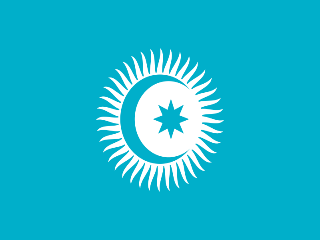Ukrainian Scenario in Kyrgyzstan
By Arslan Sabyrbekov (the 03/05/2014 of the CACI Analyst)
On February 27, a special roundtable entitled “Ukrainian scenario in Kyrgyzstan” took place in Bishkek. The participants included government representatives as well as civil society activists and opposition politicians, who expressed their diverging views on the possibility of a “Kyrgyz Euromaidan” in the spring, usually cited as the season of great political turmoil in Kyrgyzstan.
The events in Ukraine are under close scrutiny in Kyrgyzstan and have become a source of public debate. Local experts and politicians are keen to draw parallels between the two countries that to some extent have similar recent political histories. According to opposition MP and leader of the recently created United Opposition Movement Ravshan Jeenbekov, anticipations of a repeated Ukrainian scenario in Kyrgyzstan are not groundless. “Ukraine’s Yanukovych and Kyrgyzstan’s Atambayev have seized power in their own hands and presidential institutions are in both cases unaccountable to anyone but the Kremlin, which exercises full political and economic control over the countries, pressuring them to join the Customs Union,” Jeenbekov stated during the roundtable. An opposition MP proceeded by stating that “Yanukovych came to power in Ukraine when the country had a semi-presidential system and turned it into a strong presidential one and Kyrgyzstan’s President Atambayev came to power with the same political system and within two years managed to turn the country into an authoritarian state.”
Another participant of the round table, Kyrgyzstan’s Vice Prime Minister for Law Enforcement, Security and Border related issues Tokon Mamytov called on the MP to refrain from drawing direct parallels between the two presidents. According to him, Kyrgyzstan’s President Atambayev did not concentrate power to himself and his regime cannot be described as authoritarian. He proceeded by stating that “As a Vice-Prime Minister, I am not as accountable to the President or the Prime Minister as I am to the Kyrgyz Parliament. Ukraine’s President Yanukovych made the same mistakes as our previously ousted two presidents did, namely their family members de facto controlled the country’s financial resources and had a direct influence over the country’s political course.” Indeed, the Kyrgyz public is not aware of Atambayev’s family members and their occupations, which was previously the case with the two ex-Presidents. This, in turn, does not leave much room for opposition politicians to accuse the President of establishing family based rule.
During the course of the roundtable, Sergei Ponomarev, advisor to the Kyrgyz Prime Minister Jantoro Satybaldiev stated that a Ukrainian scenario will not take place in Kyrgyzstan under normal circumstances, arguing that the leaders of the recently formed United Opposition Movement are interested in taking power by organizing the same social turbulence as in Ukraine and called an opposition MP Ravshan Jeenbekov “an instrument of external powers in big politics,” citing his recent visit and participation in the Ukrainian Euromaidan. In interviews to local sources of mass media, Jeenbekov, the new face of the Kyrgyz opposition, confirmed his visit to Kiev and his meetings with then Ukrainian opposition politicians, whom he called “partners and friends.” An MP dismissed the claim that his movement had any plans or willingness to destabilize the socio-political situation in Kyrgyzstan and repeating the Euromaidan events in Bishkek and called on the country’s president to start a dialogue with them to discuss all the gaps in the country’s current political and economic direction and come up with joint decisions. The Kyrgyz opposition asserts that dialogue can take place with the President only due to their firm belief that the country’s executive as well as the legislative are under his direct control.
Kyrgyz political analyst Marat Kazakpaev believes that before making parallels between the two countries, it is necessary to analyze the internal and external factors in the region and in the global arena that affected these processes and gave rise to the events occurring in Ukraine. Kazakpaev concluded that Kyrgyzstan is one step ahead of Ukraine since the country underwent its second revolution since independence already in 2010.
Euromaidan is foremost a value-oriented wave of citizens’ uprisings, calling for democratic values and integration with Europe. Kyrgyzstan, due to its geographical location is not in a position to seek European integration but this of course does not exclude the possibility of mass movements in the country in response to a deteriorating socioeconomic situation and a recently created united opposition movement to mobilize the masses. The country’s leadership has publicly announced the creation of a new special division regiment, which in the words of the Minister for Internal Affairs “has the primary task of managing public order in accordance with the principles of democratic policing and exists in almost all the neighboring states.” Experts have already started comparing the new Division with Ukraine’s “Berkut,” which has brutally used force against the demonstrators in Euromaidan and perceive it as preparations by the country’s leadership for possible mass demonstrations in the spring.
Regarding the current situation in the Crimea, the Kyrgyz political leadership as well as analysts did not make any official statements or comments.
“CACI Analyst, February 19, 2014”
The Sochi Olympic Games and the Rise of Cossacks in the North Caucasus
By Tomáš Baranec (the 19/02/2014 of the CACI Analyst)
On December 5, 2013, Patriarch Kirill publicly supported the plans of Stavropol governor Valery Zerenkov to resettle the Semirechensk Cossacks from Kyrgyzstan to the North Caucasus. This was the most recent in a series of signs showing the steady rise of official support for the Cossacks in the region. Initially this development was frequently attributed to the need for increasing the security of the upcoming Olympic Games in Sochi, highlighted by the recent terrorist attacks in Pyatigorsk and Volgograd. However, the amount of support the Cossacks have started to receive suggests that they may play a much more important role in the Kremlin's strategy.

The Turkic Council: Will the Turks Finally Unite?
By Alim Bayaliyev (the 19/02/2014 of the CACI Analyst)
In early June this year, Turkey will host the fourth Summit of the Turkic Council, an intergovernmental organization that brings together Azerbaijan, Kazakhstan, Kyrgyzstan, and Turkey. Presidents Ilham Aliyev, Nursultan Nazarbayev, Almazbek Atambayev, and Abdullah Gül will discuss a wide range of issues related to multilateral cooperation among their countries as well as other matters pertaining to the broader regional context. While the Council has since its establishment in 2009 made meaningful progress on institutionalizing the interaction among the engaged Turkic states, it will take more time and a concerted effort to build a strong, vibrant, and sustainable political alliance.

Kyrgyzstan's President Announces 2014 as Year of Strengthening Statehood
By Jamil Payaz (the 19/02/2014 of the CACI Analyst)
On January 30, President Almazbek Atambayev signed a decree announcing 2014 as the year of strengthening statehood. He stated that the main threats to Kyrgyzstan’s statehood emanate from tensions within the political elite and irresponsible activities of some politicians that jeopardize national security and people’s unity. The decree comes at a time when the opposition has grown increasingly weak after a number of corruption cases have been launched against its leaders. Critics say the government’s campaign for enforcing the rule of law and against corruption are applied selectively.


